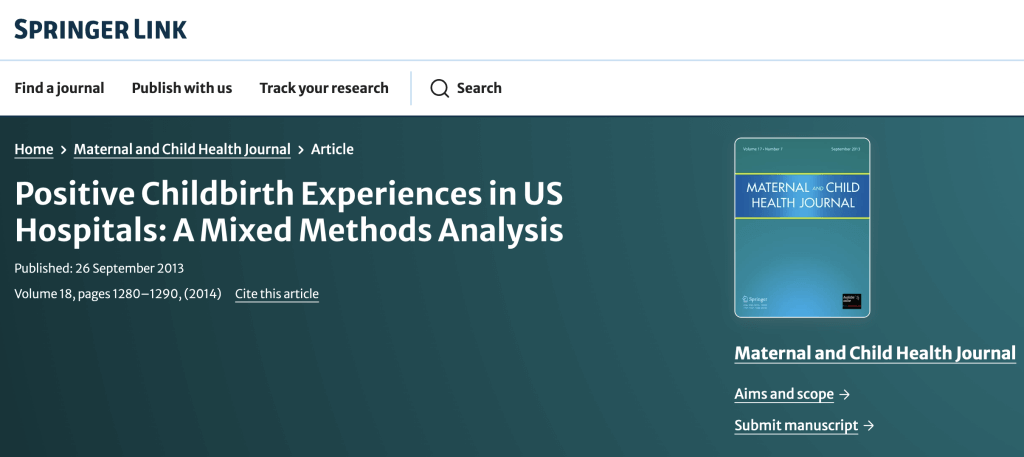Positive childbirth experiences in U.S. hospitals: a mixed methods analysis
Maternal and Child Health Journal
Abstract
Research on maternity care quality in the US often focuses on avoiding adverse events. Positive birth experiences receive less attention. This analysis used a mixed methods approach to identify factors associated with confidence and positive experiences during birth among a national sample of U.S. mothers. Data are from a nationally representative survey of women who delivered a singleton baby in a US hospital in 2005 (N = 1,573). We explored the relationship between confidence, positive birth experiences and socio-demographic characteristics as well as factors related to the clinical encounter and health systems, including common obstetric procedures and interventions. Self-reported confidence during birth was the outcome in quantitative analyses. We used logistic regression analysis and qualitative analysis of open-ended survey responses. Approximately 42% of mothers reported feeling confident during birth. Confidence going into labor was the strongest predictor of confidence during birth (adjusted odds ratio 12.88 for nulliparous women, 8.54 for parous women). Black and Hispanic race/ethnicity (compared to white) and having partner support were positively associated with confidence during birth for nulliparous women. Qualitative analyses revealed that positive experiences were related to previous birth experiences, communication between women and their clinicians, perceptions of shared decision-making, and communication among clinicians related to the timing and logistics of managing complications and coordinating care. For clinicians who care for women during pregnancy and childbirth, thoughtful, deliberate attention to factors promoting positive birth experiences may help create circumstances amenable to enhancing the quality of obstetric care and improving outcomes for mothers and infants.
